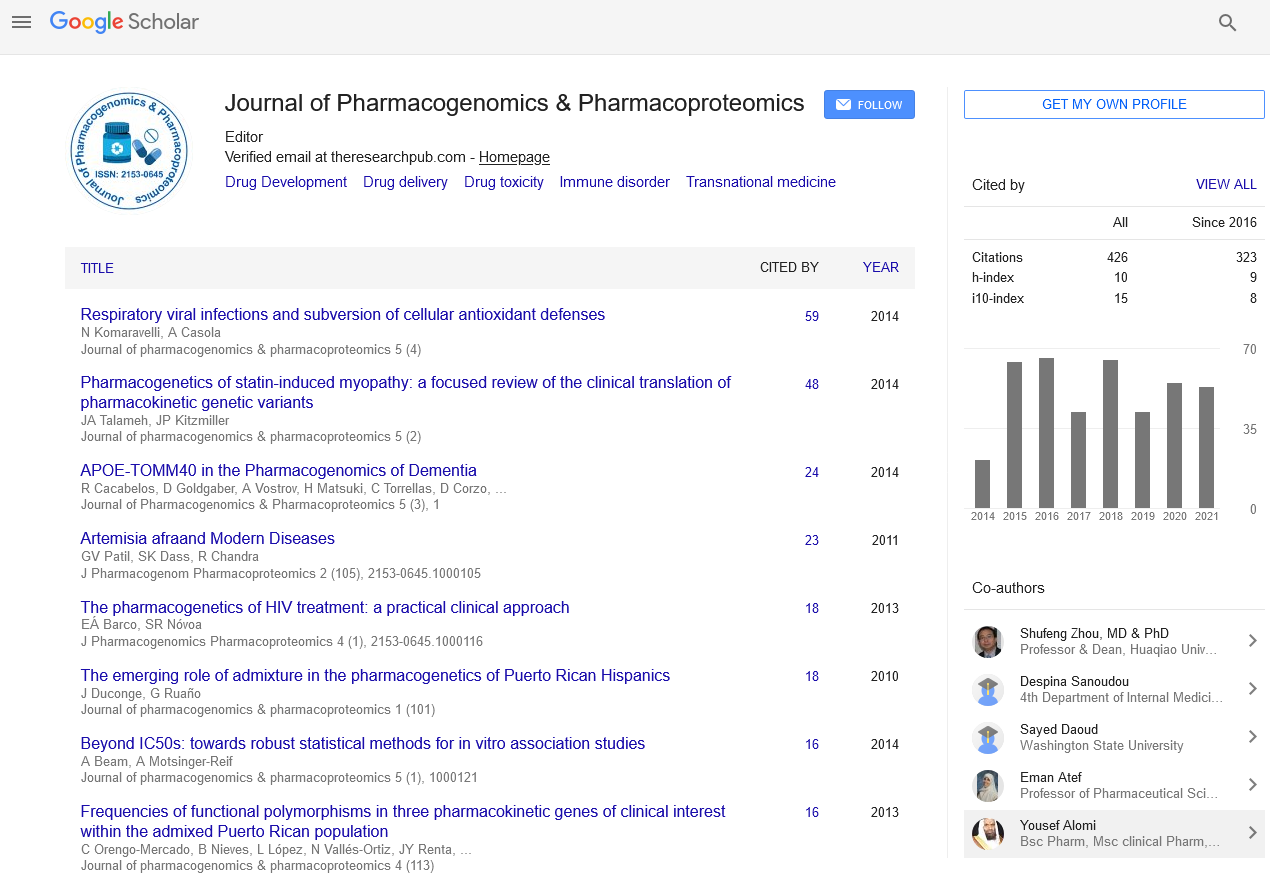Indexed In
- Open J Gate
- Genamics JournalSeek
- Academic Keys
- JournalTOCs
- ResearchBible
- Electronic Journals Library
- RefSeek
- Hamdard University
- EBSCO A-Z
- OCLC- WorldCat
- Proquest Summons
- SWB online catalog
- Virtual Library of Biology (vifabio)
- Publons
- MIAR
- Euro Pub
- Google Scholar
Useful Links
Share This Page
Journal Flyer

Open Access Journals
- Agri and Aquaculture
- Biochemistry
- Bioinformatics & Systems Biology
- Business & Management
- Chemistry
- Clinical Sciences
- Engineering
- Food & Nutrition
- General Science
- Genetics & Molecular Biology
- Immunology & Microbiology
- Medical Sciences
- Neuroscience & Psychology
- Nursing & Health Care
- Pharmaceutical Sciences
Abstract
What is the Logic behind Treating Some Heart Failure Patients without ACE Inhibitors and Beta-Blockers?
Ebraheem Alskaf, Shadia Ahmed, Donna Barnett, Meg Warriner, Andrew Birchall, Victoria Watt and Abdallah Al-Mohammad
Objectives: To obtain local data on the reasons why hospitalised heart failure patients are not being given a combination of beta-blockers (BB) and Angiotensin Converting Enzyme inhibitors (ACE –I). Method: A survey was carried out of the heart failure patients discharged in the year 2012 from Sheffield Teaching Hospitals and reported to the National Heart Failure Audit who was not on ACE-I or BB. The main measures were the reasons for not giving those agents, and the use of alternative medications. Results: The total number of our heart failure patients who were reported to the National Heart Failure Audit in 2012, and who were not on ACE-I or BB was 96 patients. Of these, 38 patients (40%) had heart failure with preserved ejection fraction (HFPEF), and 58 patients (60%) had left ventricular systolic dysfunction (LVSD). Of the 58 patients with HF-LVSD, 25 patients did not have contraindications to either ACE-I or BB. However, 2 of them were on end of life care pathway (EOLCP) and thus were appropriately managed, this leaves 23/98 (23.5%) of overall patients managed inappropriately. Contraindications to or adverse effects from ACE-I or BB were encountered in 35/58 and 15/58 of the patients, respectively. Conclusion: HFPEF is the main reason for not using BB and ACE-I in heart failure patients, followed by contraindications to these agents. ACE inhibitors had higher rate of adverse effects than beta blockers.


